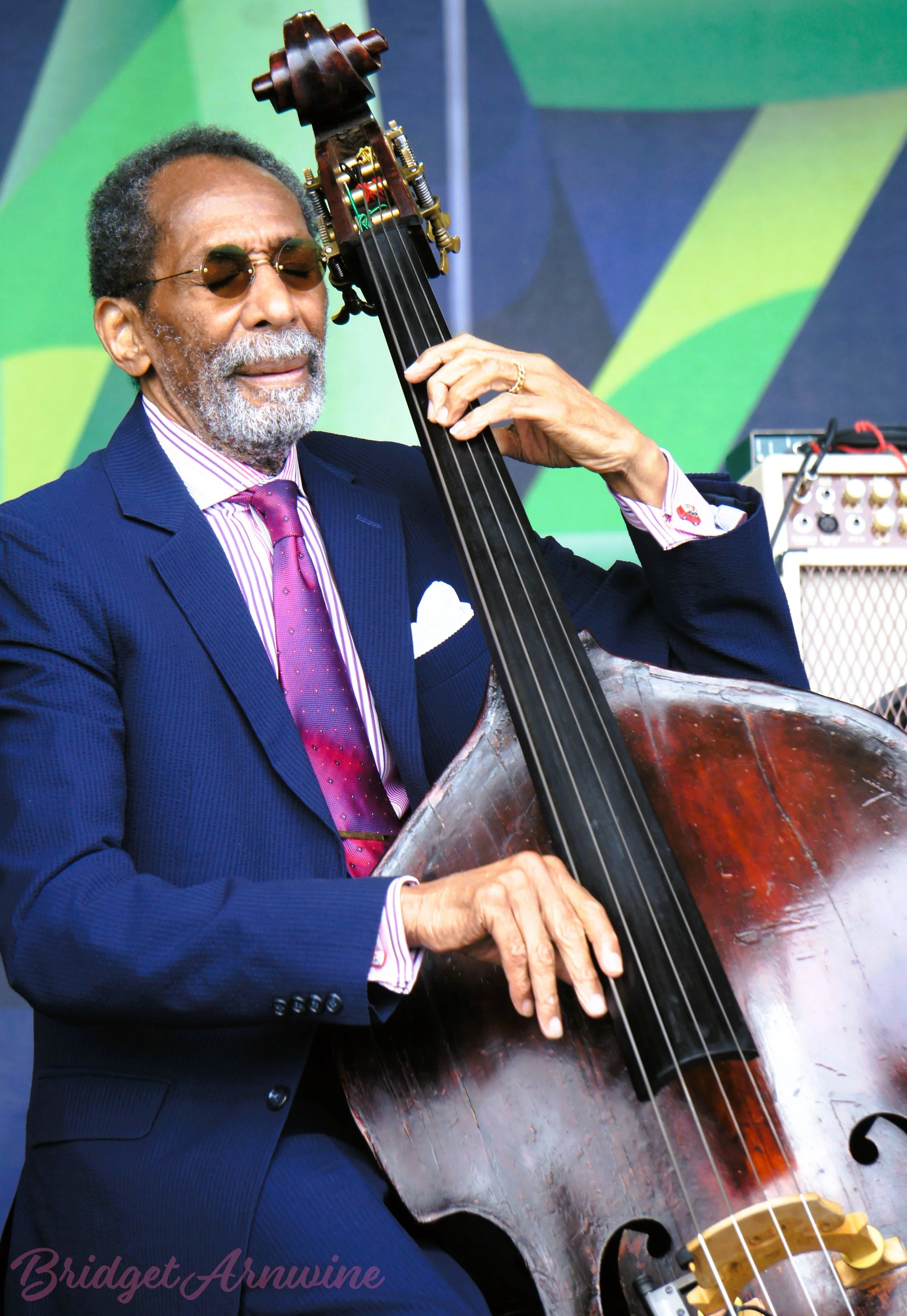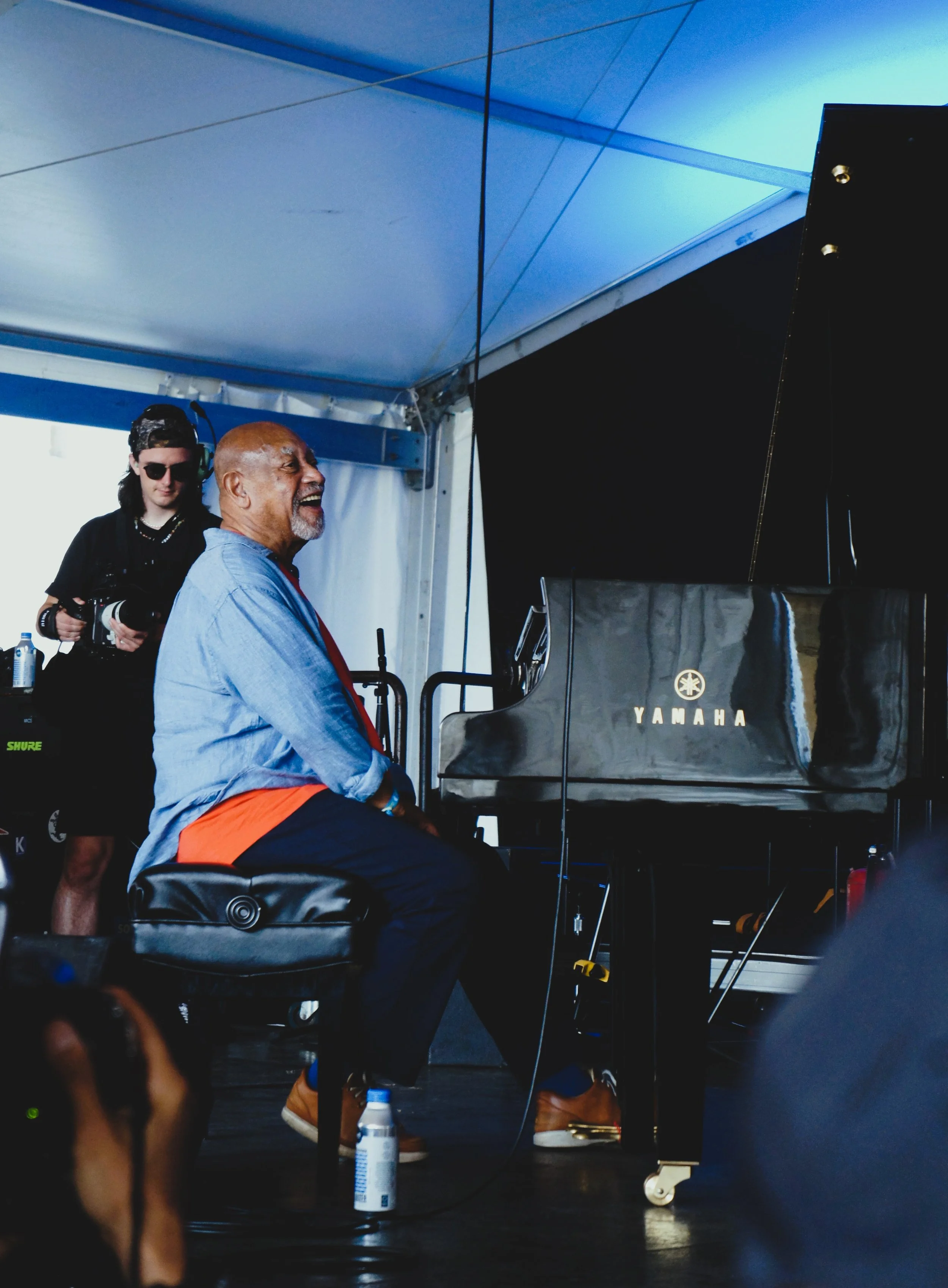Step into Ron Carter's Universe
By Bridget Arnwine
In Ron Carter’s Universe, the upright bass is a scepter. On every tour, stage, and recording, magic begins the moment he engages the instrument and plucks the first string. With more than 2,200 recordings to his credit, Ronald Levin Carter – nicknamed The Maestro for the depth and breadth of his groundbreaking work across genres – has defined what it means to be a bass player. For those fortunate enough to come behind him, his artistry has laid the foundation for what it means to be a jazz bassist. For Carter himself, a lifetime of music has been an ongoing exploration of the instrument’s possibilities.
A native of Ferndale, Michigan, Carter has devoted himself to music since the age of ten, when he switched from cello to bass in high school. More than seven decades later, there is no sign he intends to slow down. At eighty-eight, he is still discovering what’s possible.
Fresh off his performance at the 2025 Newport Jazz Festival, Ron Carter took time for a brief email exchange. Although his answers are short and sweet, what follows are his reflections on the surprises of a long career, the inspiration he draws from peers, and the beauty of still creating at eighty-eight years old.
Bridget Arnwine: You’ve been a professional musician for more than 60 years. What do you find most exciting about jazz and how it’s evolved?
Ron Carter: What’s been most exciting is navigating the space between what people expect me to deliver and what I’ve been fortunate enough to actually deliver.
BA: Do you feel pressure to create or lead your bands in a certain way? In the earlier parts of your career, when you initially started leading your own bands, did you ever experience "imposter syndrome?" Considering the conversation that often follow the legends you’ve performed with and the questions you likely receive about them, did that ever intimidate you when you decided you were ready to lead?
RC: Absolutely not!
BA: You are often regarded as one of the most influential bassists in the history of jazz music. What inspires your creative process?
RC: I’m most inspired by the company I keep.
BA: You’ve collaborated as a leader, bandmate, and featured artist on over 2,200 records. They weren’t all jazz records. How do you decide which projects to participate in/which gigs to accept?
RC: I play on any project that offers me the best chance to get better.
BA: Do your current musical endeavors include non-jazz projects?
RC: Yes. I am working on a hybrid jazz/gospel album with Dr. Ricky Dillard, which will be released in 2026.
BA: Do you think it’s important to define yourself as a musician—say, as a jazz musician, a bassist, or a Black male bassist who plays jazz? Does self-definition limit creative directions?
RC: No, I don’t think defining yourself limits you in any way.
BA: Are you satisfied with what you've accomplished in your career? How do you feel about your contribution to jazz music?
RC: I’m still too busy accomplishing as much as I can!
Even after decades of performing this music, Ron Carter remains focused on what’s ahead creatively. He continues to prove that even at eighty-eight, being curious and drawing inspiration from peers and the world around you is the stuff that great musicians are made of. He may not have had much to say, but the enormity of his work speaks volumes.






